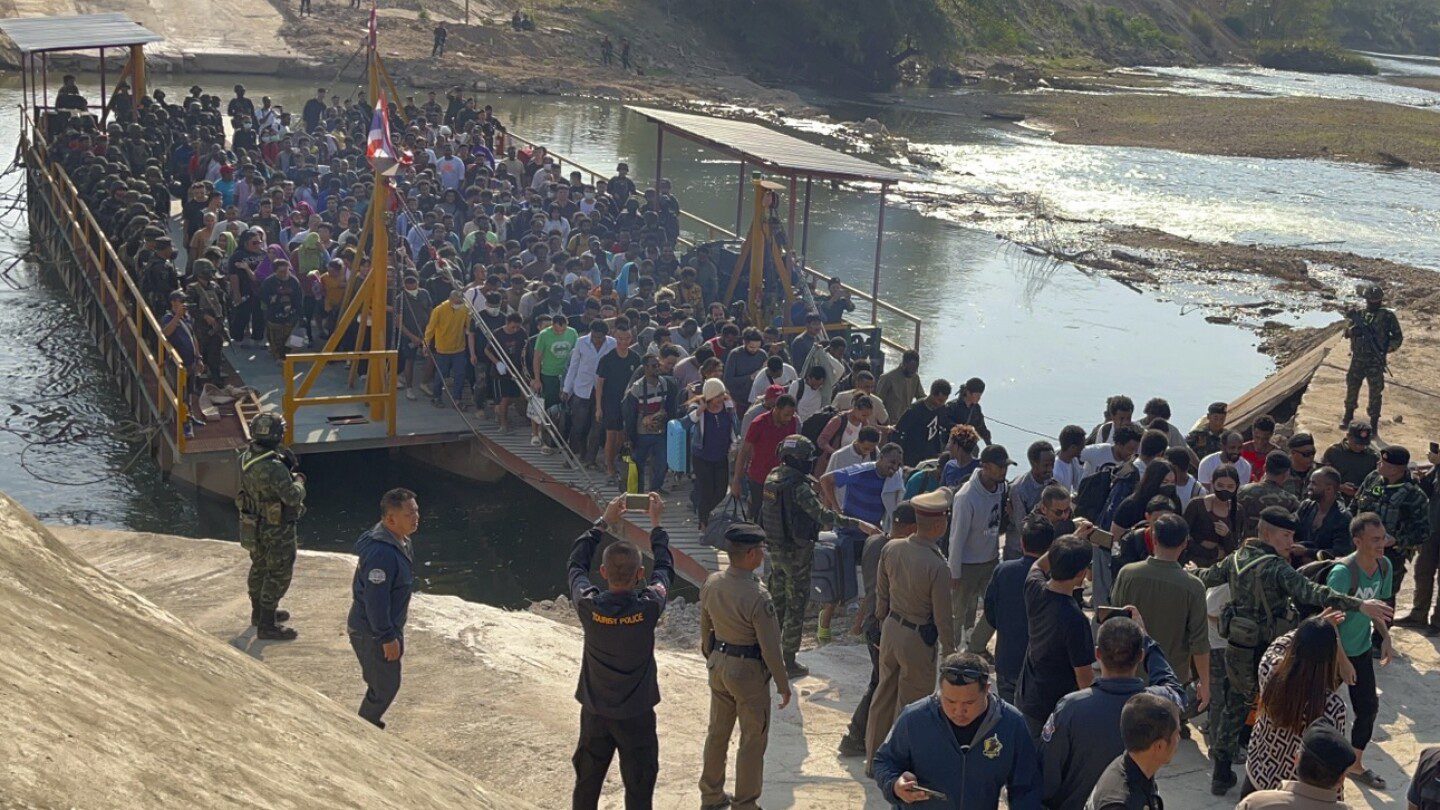
BANGKOK (AP) — The Thai army announced on Thursday that approximately 260 individuals believed to be victims of human trafficking will be repatriated after being rescued from online scam centers in Myanmar.
This operation is part of a renewed crackdown on such scam operations in Southeast Asia. The Thai army stated that they are working diligently to return these individuals to their home countries after their harrowing experiences in scam environments.
Myanmar, Cambodia, and Laos have increasingly become hotspots for criminal networks, which are believed to have coerced hundreds of thousands of people in Southeast Asia and beyond into orchestrating online scams—ranging from fake romantic engagements to fraudulent investment schemes and illicit gambling.
According to United Nations experts, these scams have collectively siphoned off tens of billions of dollars from global victims. Those recruited often fall prey to deceptive job offers, leaving them ensnared in virtual servitude.
A previous crackdown in Myanmar started in late 2023, prompted by growing concerns in China regarding illegal casinos and scam activities operating in Myanmar’s Shan state. Ethnic guerrilla factions, with connections to Beijing, dismantled many of these operations, resulting in the repatriation of around 45,000 Chinese nationals suspected of involvement.
The recent rescue brought together individuals from 20 different countries, including notable numbers from Ethiopia, Kenya, the Philippines, Malaysia, Pakistan, and China. Other nationalities represented include people from Indonesia, Nepal, Taiwan, Uganda, Laos, Brazil, Burundi, Tanzania, Bangladesh, Cambodia, Sri Lanka, Nigeria, Ghana, and India. These individuals were transported from Myanmar’s Myawaddy district to Thailand’s Tak province.
Thai media reports indicate that the Democratic Karen Benevolent Army, an ethnic militia in the area, was responsible for liberating the workers and escorting them to the border. The military government of Myanmar is said to have minimal control over areas largely inhabited by ethnic minorities.
Several ethnic militias are suspected of engaging in criminal enterprises, including drug trafficking and safeguarding call-center scams.
The Thai army noted that the rescued individuals would undergo questioning, and those identified as victims of human trafficking will enter a protection process while awaiting repatriation. Deputy Prime Minister and Defense Minister Phumtham Wechayachai remarked that there could be many more workers in need of repatriation from Myanmar through Thailand. However, only those ready for immediate return will be accepted.
“I want to emphasize that Thailand will not establish any additional shelters,” he told reporters during a visit to Sa Kaeo province, which shares a border with Cambodia. There are already nine refugee camps along Thailand’s border, accommodating over 100,000 individuals, primarily from Myanmar’s Karen ethnic group.
Phumtham further explained that Thailand must question the rescued individuals prior to their return to ensure they are indeed victims of human trafficking and to gather information that could aid law enforcement in addressing trafficking and scam issues.
During a trip to China in early February, Thailand’s Prime Minister Paetongtarn Shinawatra, along with China’s Xi Jinping, pledged to intensify efforts against the scam networks that afflict Southeast Asia.
Numerous accounts have emerged of Chinese citizens being lured to work in Bangkok only to find themselves trafficked to scam compounds in Myanmar. A high-profile case involved Chinese actor Wang Xing, who was swiftly rescued after his story gained attention on social media.
In a move highlighting Beijing’s concerns, Liu Zhongyi, China’s Vice Minister of Public Security, made an official visit to Thailand last month to assess the border regions adjacent to several scam centers in Myanmar.
Just prior to Paetongtarn’s visit to China, the Thai government issued a directive to cut electricity, internet, and gas supplies to various regions in Myanmar near Thailand’s northern border, citing national security and the substantial harm caused by scam operations. Additionally, the government is considering extending these measures to northeastern areas bordering Cambodia, as stated by Thai Defense Ministry spokesperson Thanathip Sawangsang, who mentioned the removal of illegally installed internet cables in these regions.









